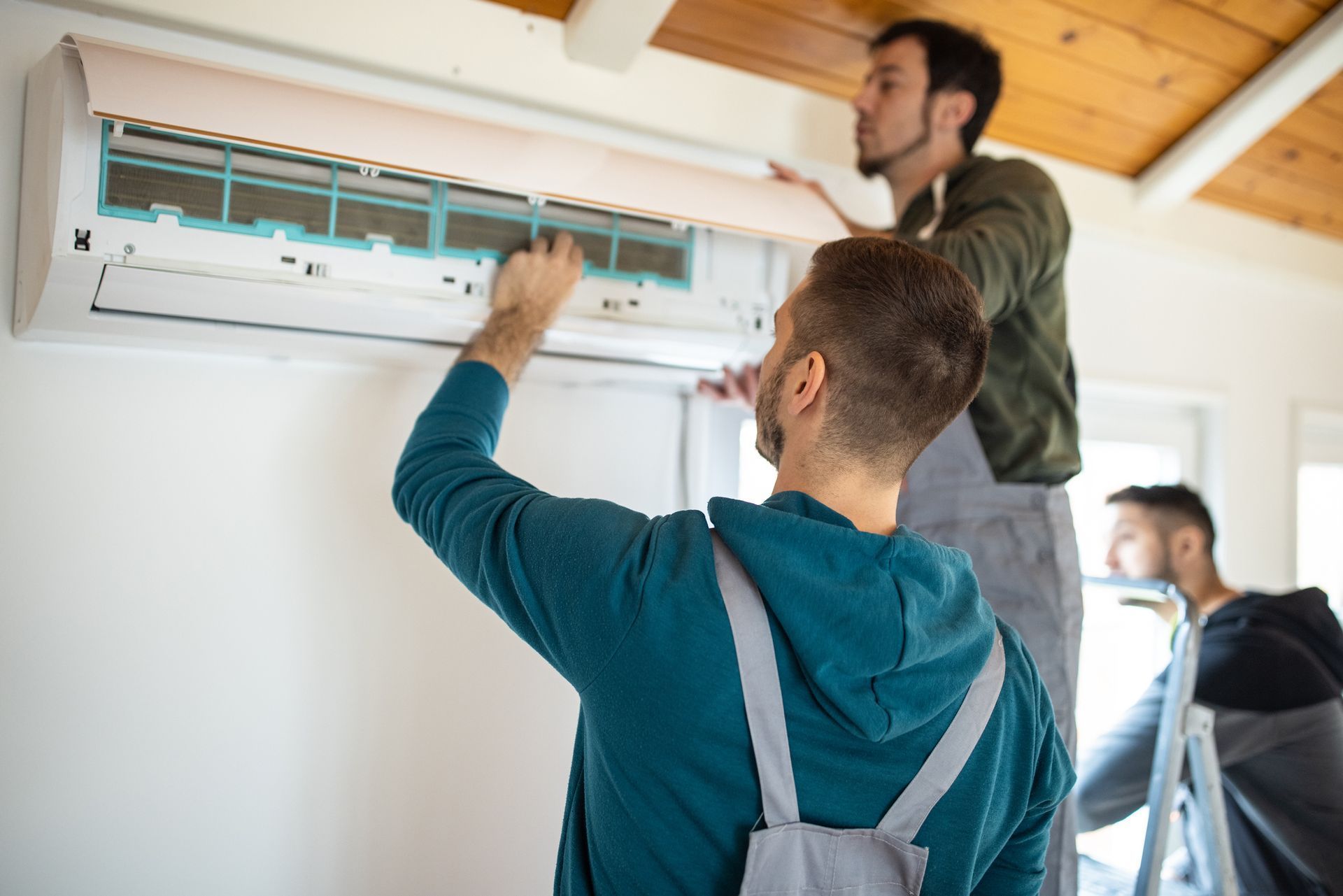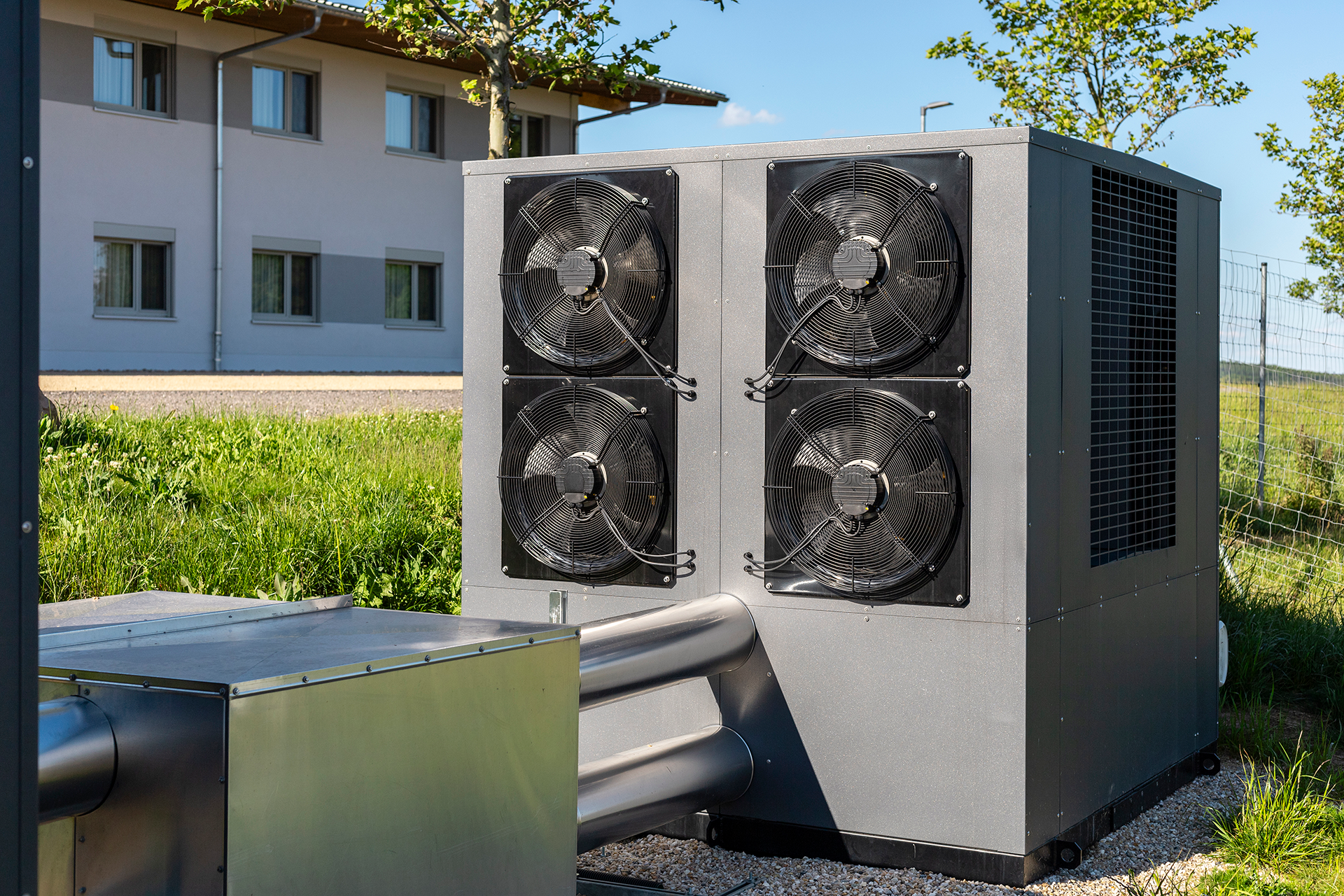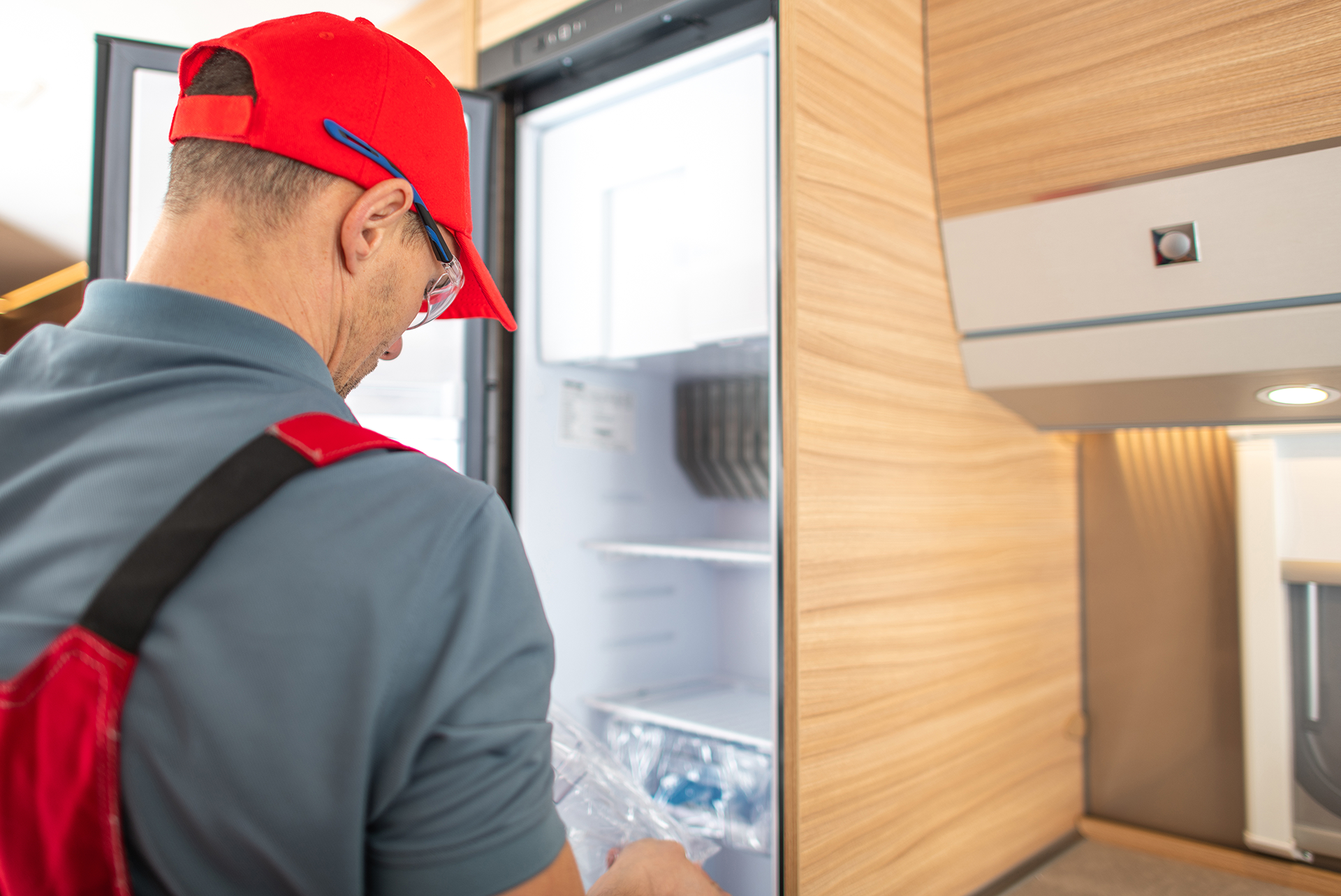Running a solar or hybrid HVAC contracting business means managing a unique set of risks. From expensive equipment damage to liability for client property, the right insurance coverage can make all the difference when unexpected events occur. Understanding which policies offer the best protection helps contractors stay resilient and competitive.
Damage claims related to solar equipment are becoming more common, with the average payout around $3,700 after deductibles, largely due to hail and fire incidents. This highlights the importance of tailored insurance solutions for contractors working in these sectors. For more detailed insights on solar claims, theclm.org provides an in-depth look at current trends.
Why Solar and Hybrid HVAC Contractors Face Distinct Insurance Challenges
Solar and hybrid HVAC contractors operate at the intersection of two rapidly evolving industries. Solar technology is advancing quickly, and many consumers prefer leasing panels rather than owning them. This leasing trend, noted by attorney Victoria Godwin-Reese, stems from concerns over technology becoming outdated too fast. Contractors must navigate these market dynamics while managing risks related to equipment damage and liability. Hybrid HVAC systems, which combine traditional heating and cooling with renewable energy sources, add complexity to installations and maintenance. This complexity increases the potential for equipment failure or property damage, making comprehensive insurance coverage essential. Inflation also plays a role here; rising equipment and labor costs mean that damage assessments must be precise to avoid costly insurance disputes, as emphasized by Curt VanNess, Technical Director for HVACi.
Equipment Damage and Losses
Solar panels and HVAC units are significant investments. The National Renewable Energy Laboratory’s analysis reveals that photovoltaic equipment losses often stem from environmental factors and installation issues. In 2021, hail and fire accounted for about two-thirds of solar insurance claims, underscoring the need for policies that cover these common perils.
Hybrid HVAC systems face similar risks, with nearly 40% of equipment losses in the HVAC industry attributed to causes typically excluded from standard coverage. This evolving risk environment demands more specialized insurance products tailored to the realities contractors face on the ground. Moreover, as the technology behind hybrid systems continues to advance, contractors must stay informed about the latest innovations and their associated risks. For instance, advancements in smart HVAC technology can lead to new vulnerabilities, such as cybersecurity threats, which necessitate additional coverage considerations.
Furthermore, the regulatory landscape surrounding renewable energy and HVAC systems is constantly changing. Contractors must keep abreast of local, state, and federal regulations that can impact their insurance needs and liabilities. For example, some regions may offer incentives for using renewable energy sources, while others may impose stricter compliance requirements that could affect installation practices. This shifting regulatory framework can complicate risk management strategies, making it imperative for contractors to work closely with insurance professionals who understand the nuances of both industries. As they navigate these complexities, the importance of tailored insurance solutions that address the unique challenges faced by solar and hybrid HVAC contractors cannot be overstated.
HVACInsure is fully licensed and permitted to sell contractor and commercial insurance in USA.
We proudly serve clients throughout the United States and maintain partnerships with local Texas insurance carriers to ensure HVAC professionals receive compliant, affordable, and comprehensive coverage that meets project and regulatory requirements.
Key Insurance Coverages for Solar and Hybrid HVAC Contractors
Choosing the right insurance portfolio means balancing coverage for property, liability, and business interruptions. Here are the essential types of insurance every solar and hybrid HVAC contractor should consider.
General Liability Insurance
This is the foundation of any contractor’s insurance plan. It protects against third-party claims for bodily injury, property damage, and related legal costs. For HVAC contractors, liability insurance premiums usually range from 1% to 3.5% of annual revenue, with typical policy limits of $1 million per occurrence and $2 million aggregate.
Because hybrid HVAC work often involves on-site installations and interactions with clients’ properties, general liability coverage is critical. It covers accidents like a client slipping on equipment or damage caused during installation. Additionally, many clients may require proof of general liability insurance before allowing work to commence, making it not just a protective measure but also a business necessity for securing contracts.
Equipment and Property Insurance
Protecting expensive solar panels and HVAC units from damage or theft is vital. Equipment insurance covers repair or replacement costs after incidents like hailstorms, fires, or vandalism. Given that the average solar equipment claim is about $3,700 post-deductible, this coverage can prevent significant out-of-pocket expenses.
Hybrid systems require coverage that extends to both traditional HVAC components and renewable energy equipment. Contractors should ensure their policies explicitly include hybrid technology to avoid coverage gaps. Furthermore, as technology evolves and new equipment is introduced, it’s crucial for contractors to regularly assess their insurance needs to ensure that all new tools and machinery are adequately covered, thus safeguarding their investments and ensuring operational continuity.
Workers’ Compensation Insurance
Jobs involving solar panel installation and HVAC repairs carry physical risks. Workers’ compensation insurance covers medical expenses and lost wages if employees get injured on the job. This coverage is often mandatory and protects both workers and business owners. In addition to covering injuries, it can also provide rehabilitation services, which can be essential for employees recovering from serious incidents, allowing them to return to work safely and efficiently.
Professional Liability Insurance
Also called errors and omissions insurance, this protects contractors against claims of faulty workmanship or design flaws. Given the technical complexity of hybrid HVAC systems and solar installations, professional liability coverage helps manage risks related to installation errors or system failures. It is particularly important as clients become more knowledgeable and discerning about the systems they invest in, often expecting high standards of performance and reliability. This insurance not only provides financial protection but also enhances a contractor's credibility in a competitive market.
Business Interruption Insurance
Unexpected events like natural disasters or equipment failures can halt operations. Business interruption insurance covers lost income and ongoing expenses during downtime. For contractors relying on continuous project flow, this coverage helps maintain financial stability. Moreover, in an industry that often faces seasonal fluctuations, having this insurance can be a lifeline during slower months, ensuring that fixed costs such as rent and salaries are still covered even when work is temporarily unavailable. This added layer of security allows contractors to focus on recovery and growth rather than immediate financial pressures.
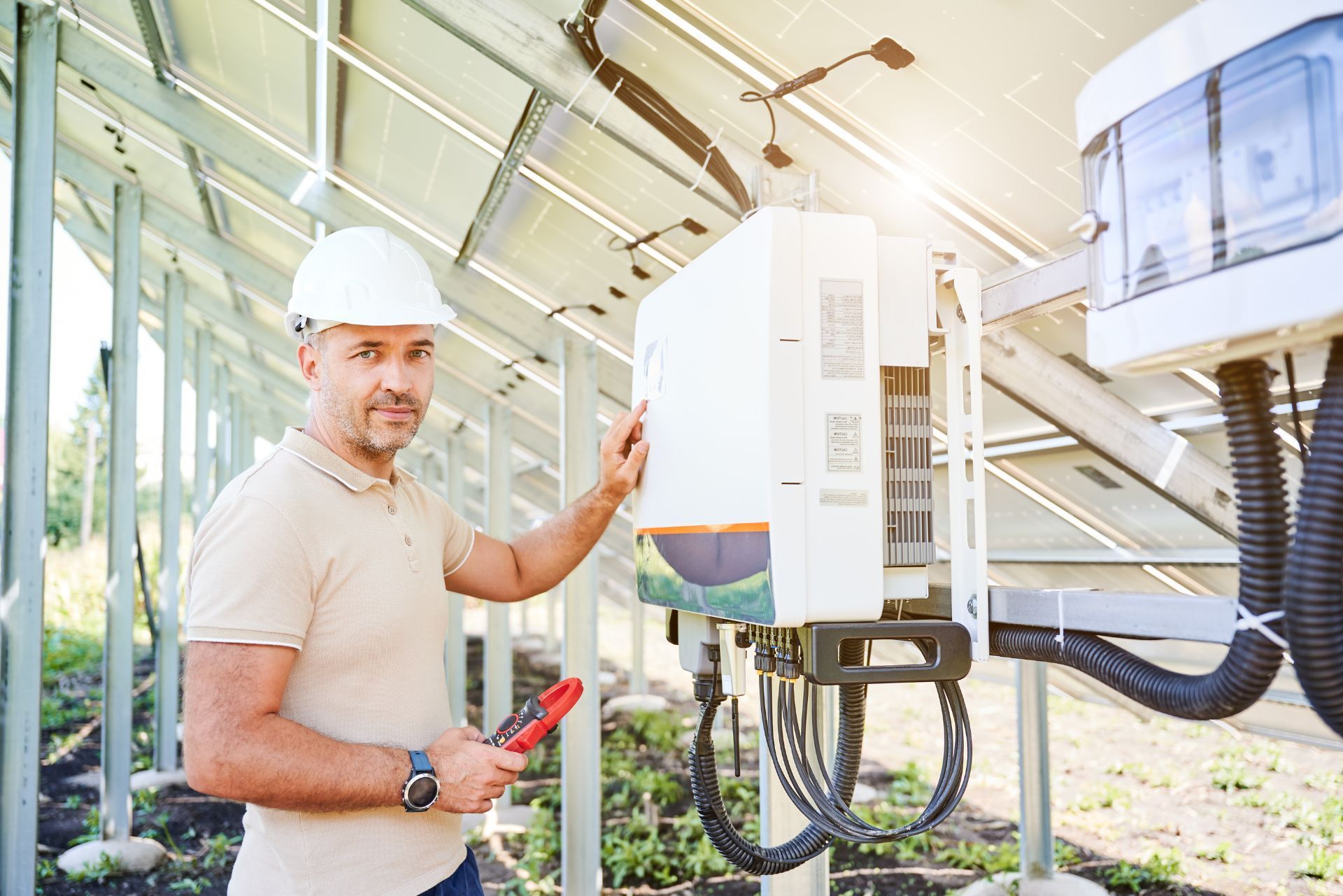
Emerging Trends in Solar Insurance and Their Impact on Contractors
The solar insurance market in the U.S. has grown to $1.82 billion in 2024, fueled by policy incentives and the increasing need for climate-related risk coverage. This growth reflects a broader recognition of the unique risks solar contractors face and the demand for innovative insurance solutions.
One promising development is the use of blockchain technology combined with remote sensing to create parametric solar energy insurance. This model automates underwriting and claims processing, increasing transparency and speeding up settlements. Such innovations could reduce disputes and improve trust between contractors, insurers, and clients. More on this can be found in a recent study on parametric solar energy insurance.
Leasing vs. Owning Solar Panels: Insurance Implications
Most consumers lease solar panels rather than owning them outright. This preference affects how insurance policies are structured. Leasing companies often require contractors to carry specific insurance to protect their assets. Contractors should understand these requirements to avoid coverage gaps and ensure compliance.
Leasing arrangements also shift some risk away from consumers, placing more responsibility on contractors and leasing firms. This dynamic makes it even more important for contractors to have robust insurance tailored to leasing scenarios. Additionally, the rise of community solar projects, where multiple users share the benefits of a single solar installation, introduces further complexities in insurance coverage. Contractors involved in these projects must navigate a web of liability considerations, ensuring that all parties are adequately protected against potential losses or damages. This evolving landscape necessitates a proactive approach to risk management and an understanding of how various insurance products can be leveraged to meet the unique needs of community solar initiatives.
Furthermore, as the solar industry continues to mature, the importance of specialized training for contractors cannot be overstated. Understanding the nuances of solar insurance, including the implications of different financing models, can empower contractors to make informed decisions that enhance their business resilience. Workshops and seminars focused on insurance education are becoming increasingly popular, providing contractors with the knowledge they need to effectively communicate with clients and insurance providers alike. As these educational resources become more accessible, contractors will be better equipped to navigate the complexities of the solar insurance landscape, ultimately leading to improved project outcomes and client satisfaction.
Managing Inflation and Rising Costs in HVAC and Solar Claims
Inflation has pushed up the costs of equipment and labor, making accurate damage evaluations more crucial than ever. Overestimating damage can lead to inflated claims and higher premiums, while underestimating leaves contractors exposed to unexpected expenses.
Curt VanNess highlights that contractors and insurers must collaborate closely to ensure fair settlements. This means investing in thorough inspections and using up-to-date pricing data for repairs and replacements. The integration of technology, such as advanced estimating software and digital inspection tools, can further enhance the accuracy of evaluations, allowing for a more streamlined claims process. By leveraging these tools, both contractors and insurers can gain a clearer understanding of the actual costs involved, thereby fostering transparency and trust in the claims process.
Claims Trends and Risk Management
According to the 2024 HVACi Annual Claims Report, 39% of equipment losses were due to causes often excluded from coverage. This statistic underscores the importance of understanding policy exclusions and working proactively to mitigate risks. In addition to familiarizing themselves with policy details, contractors are encouraged to engage in regular training and education on emerging risks and industry standards. This proactive approach not only equips them to handle claims more effectively but also positions them as knowledgeable partners to their clients.
Solar contractors should also be aware of common claim drivers like hail and fire. Implementing preventive measures such as protective coatings or enhanced installation techniques can reduce claim frequency and severity. Furthermore, staying informed about local weather patterns and potential natural disasters can help contractors prepare for and mitigate risks associated with environmental factors. By investing in robust risk management strategies, contractors can not only protect their businesses but also provide greater peace of mind to their clients, fostering long-term relationships built on reliability and trust.
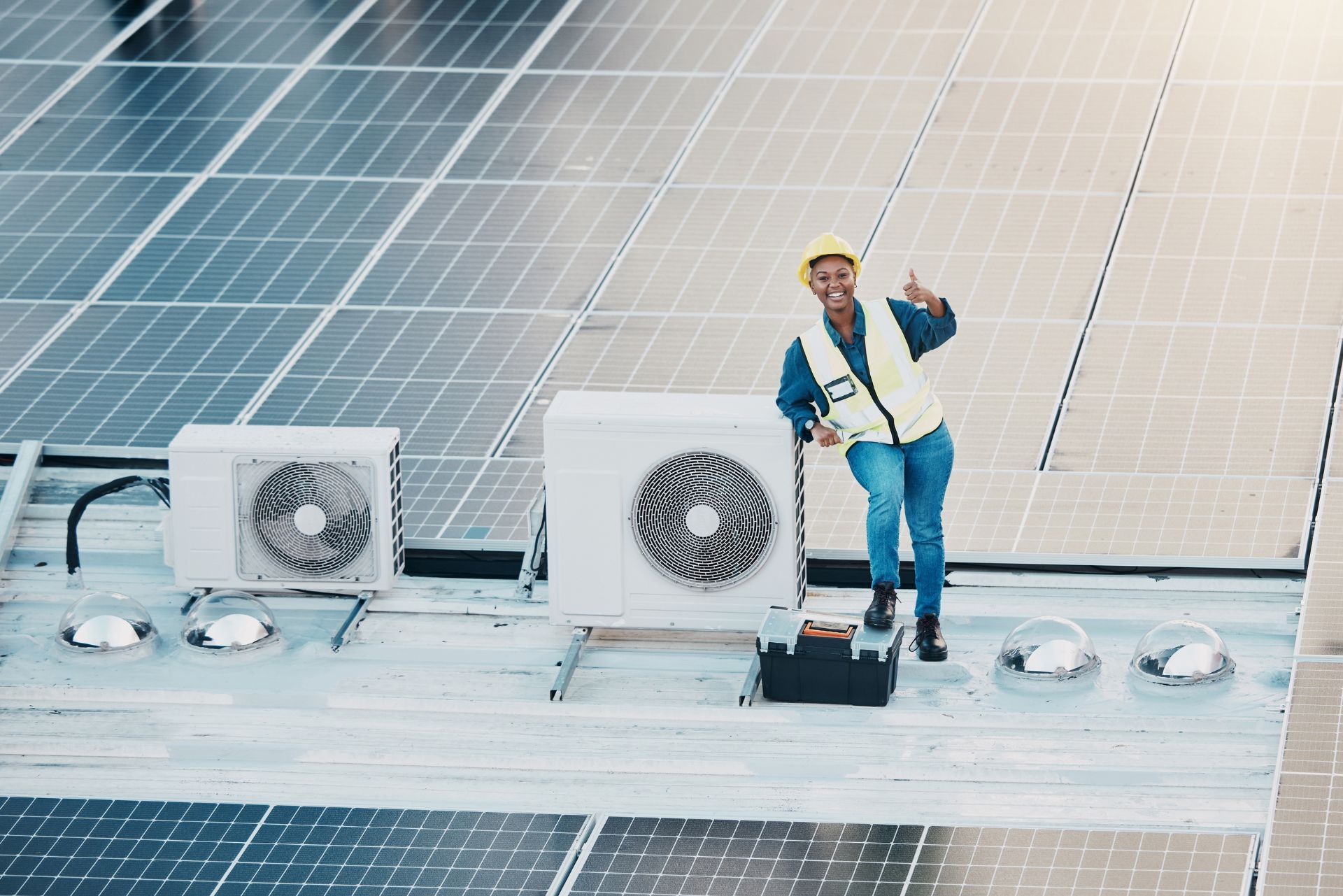
Coverage Comparison: General Liability vs. Professional Liability for Contractors
| Coverage Type | What It Covers | Typical Limits | Why It Matters for Solar/Hybrid HVAC |
|---|---|---|---|
| General Liability | Bodily injury, property damage, legal defense | $1M per occurrence / $2M aggregate | Protects against accidents during installation or on client property |
| Professional Liability | Errors, omissions, faulty workmanship claims | Varies, often $1M per claim | Essential for technical mistakes in system design or installation |
Understanding the nuances between general liability and professional liability insurance is crucial for contractors, especially those involved in specialized fields like solar and hybrid HVAC systems. General liability insurance serves as a safety net for unforeseen accidents that may occur on-site, such as a worker accidentally damaging a client's property or a visitor getting injured during the installation process. This type of coverage not only protects the contractor's financial interests but also helps maintain a good relationship with clients by ensuring that any mishaps are handled responsibly. The peace of mind that comes with knowing you are covered can be invaluable, particularly in high-stakes environments where the safety of both workers and clients is paramount.
On the other hand, professional liability insurance addresses a different set of risks that contractors face, particularly those related to the quality and accuracy of their work. In the realm of solar and hybrid HVAC systems, where technology and installation techniques are constantly evolving, the potential for errors or omissions can have significant consequences. For instance, a miscalculation in the system design could lead to inefficiencies or even system failures, resulting in costly repairs and dissatisfied customers. Professional liability insurance provides essential coverage against claims arising from these types of technical mistakes, ensuring that contractors can defend themselves against allegations of negligence or inadequate service. This coverage not only protects the contractor's financial stability but also enhances their professional reputation by demonstrating a commitment to quality and accountability in their work.
Before You Go: Practical Tips for Choosing the Right Insurance
Start by assessing your specific risks. Are you primarily installing leased solar panels or owned systems? Do you work mostly with hybrid HVAC units or traditional equipment? Understanding these nuances helps tailor your insurance portfolio.
Work with an insurance advisor who understands the solar and HVAC industries. They can help identify gaps and recommend policies that reflect current market conditions, including inflation impacts and emerging technologies.
Regularly review your coverage as your business grows or changes focus. The solar insurance market is evolving quickly, so staying informed ensures you remain protected against new risks.
Finally, invest in risk management practices. Training your crew on safety, using quality materials, and documenting installations can reduce claims and improve your insurance standing.
Frequently Asked Questions
Q: Do I need separate insurance for solar and HVAC work?
A: It depends on your business model. Many policies cover both, but specialized endorsements or separate policies may be needed for solar equipment or hybrid systems.
Q: How does leasing solar panels affect my insurance?
Leasing often requires contractors to carry specific insurance to protect the lessor’s assets. Make sure your coverage meets these requirements.
Q: What causes most solar equipment insurance claims?
Hail and fire are responsible for about two-thirds of solar equipment claims, with average payouts around $3,700 after deductibles.
Q: Can blockchain improve solar insurance claims?
Yes. Blockchain combined with remote sensing can automate claims and underwriting, making the process faster and more transparent.
Q: How does inflation impact HVAC insurance claims?
Rising equipment and labor costs mean damage assessments must be accurate to avoid overpaying or underpaying claims.
Q: What is the typical cost of liability insurance for HVAC contractors?
Premiums usually range from 1% to 3.5% of annual revenue, with standard policy limits of $1 million per occurrence and $2 million aggregate.

About The Author: James Jenkins
I’m James Jenkins, Founder and CEO of HVACInsure. I work with HVAC contractors and related trades to simplify insurance and make coverage easier to understand. Every day, I help business owners secure reliable protection, issue certificates quickly, and stay compliant so their teams can keep working safely and confidently.
Recognized by National HVAC Trade Associations
These trusted organizations set best practices and standards that carriers rely on when underwriting HVAC risks.
Membership signifies adherence to HVAC industry standards and contractor best practices.
Reviews
HVAC Contractor Reviews of
We're trusted by HVAC contractors throughout the US. Check out what our clients have to say about HVACInsure:
Coverage for Crews, Vehicles, and Tools
Insurance for HVAC Contractors
We provide business insurance designed for HVAC contractors. These policies protect your crew, vehicles, and tools while helping you meet project requirements. Every policy is explained clearly and delivered quickly so you can work without delays.
Resources
Insurance Tips for HVAC Contractors
Our blog is built for contractors who want fast answers. Each article covers common questions and risks in under five minutes of reading.
Frequently Asked Question
Common HVAC Contractor Insurance Questions
These FAQs address common contractor questions. As HVACInsure grows, we will update this section with real client experiences and answers.
Why should an HVAC contractor use HVACInsure instead of a general agency?
Specialists understand jobsite requirements, certificate wording, and common endorsements for HVAC work. You get cleaner paperwork, faster approvals, and coverage that fits how your crews operate.
This reduces delays at the gate, avoids gaps, and helps you pass compliance checks the first time.
How fast can I get a Certificate of Insurance (COI)?
Most standard COIs are issued the same business day after binding or updates. If you need additional insured, primary/non-contributory, or waiver language, we prepare it correctly the first time.
Our goal is simple: get your crew on site without paperwork delays.
What coverages do HVAC contractors usually need?
Core policies include General Liability, Commercial Auto, Workers’ Comp, Property/Tools, Inland Marine, and Umbrella. Many projects require higher limits and specific endorsements.
We align your coverage with contract terms and explain each choice in plain language.
Will my tools and scheduled equipment be covered in vans or on jobsites?
Yes. Inland Marine (tools and equipment) can cover items in transit, stored in vehicles, or staged on site.
High-value items can be scheduled, and limits can match your daily field use to keep work moving.
Can I lower my premium without weakening protection?
Often, yes. Clean driver lists, accurate payrolls, safety programs, and bundling policies can help.
We review your profile, request carrier credits, and adjust limits and deductibles to control cost while meeting project requirements.
What should I do after a loss?
Contact us right away so we can file with the correct carrier and set expectations. We guide documentation, next steps, and follow-ups until closure.
Fast reporting and clear records help resolve claims sooner and keep your team focused on work.

Still have questions?
Can’t find the answer you’re looking for? Please chat to our friendly team!
Contact Us



